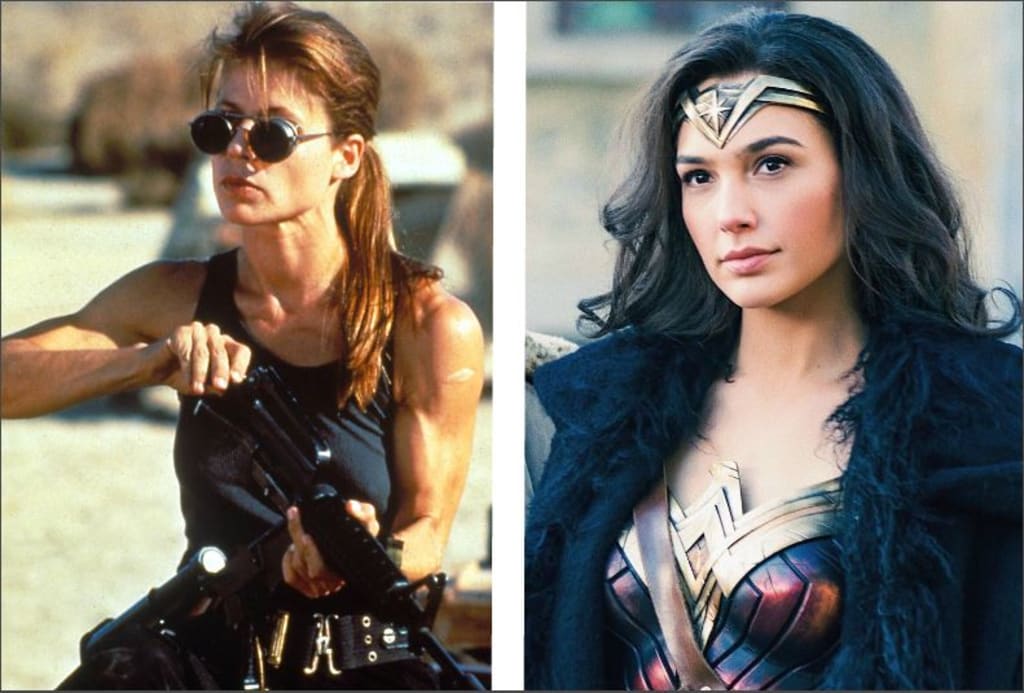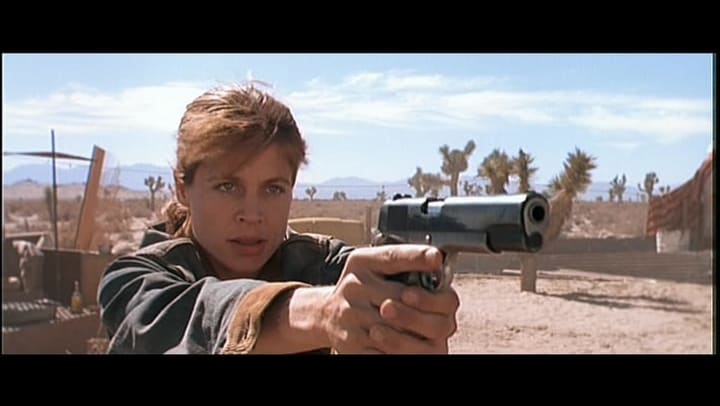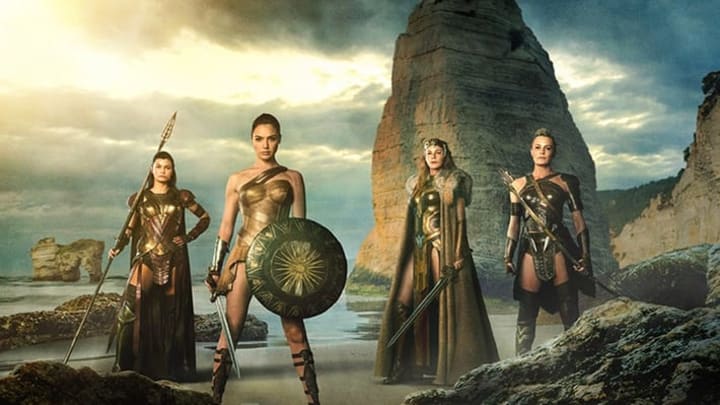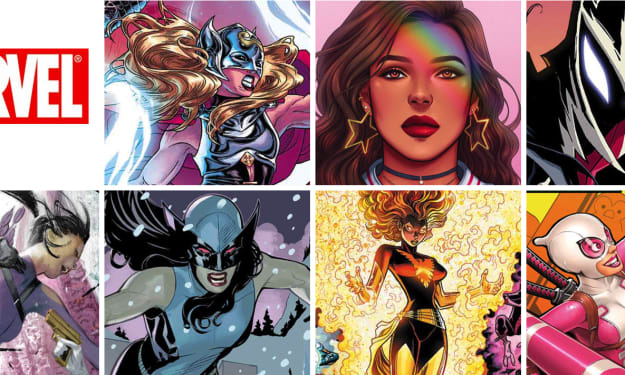Sarah Connor v Wonder Woman: Unpacking the Cameron-Jenkins Feud
Breaking down the Cameron-Jenkins Feud: the root of which was Terminator's Sarah Connor and Wonder Woman.

Last week, the internet and Twitter blew up in vitriol about #JamesCameron’s comments on the #WonderWoman film. While promoting the new 3D rendition of his now classic science-fiction film Terminator 2: Judgment Day, the director had some harsh words to share in an interview with the UK newspaper The Guardian. This is what he said:
“All of the self-congratulatory back-patting Hollywood’s been doing over Wonder Woman has been so misguided. She’s an objectified icon, and it’s just male Hollywood doing the same old thing! I’m not saying I didn’t like the movie but, to me, it’s a step backwards.”
The comments have not been received well by anyone, and Wonder Woman’s director, #PattyJenkins, has already formulated a biting retort on her Twitter account, encapsulating the feelings of fans around the world. Whether you are a fan of superhero films or not, you will be aware that Wonder Woman has been an incredible success for the #DCEU and for women of Hollywood in general, clocking in $800 million at the domestic and international box office. It has taken this iconic character decades to headline her own film, and anticipation was high for the eventual product, which thankfully director Jenkins delivered. As the DCEU’s best film yet, audiences worldwide have been mesmerised by a female-led film that refuses to reduce the main character to a series of tropes. So, one wonders, what is Cameron on about? In the second-half of the above statement, Cameron talks about his iconic female hero, #SarahConnor, and why he feels she remains an idol to this day:
“Sarah Connor was not a beauty icon. She was strong, she was troubled, she was a terrible mother, and she earned the respect of the audience through pure grit. And to me, [the benefit of characters like Sarah] is so obvious. I mean, half the audience is female!”

Linda Hamilton as Sarah Connor (Credit: Carolco)
There’s a lot to unpack here in Cameron’s comments but some of his sentiments do resonate. The best heroes are the troubled, ambiguous ones – those who operate in the grey area most of us are too afraid to navigate. Usually, these heroes are played by male actors, with female actors being side-lined as one-dimensional love interests or plot devices. Sarah Connor certainly doesn’t fit those latter roles. I can’t say I ever idolised Connor, perhaps it was because I was too young to analyse her characterisation in this fashion, but Cameron has a point about her depiction. After being something of a damsel-in-distress in the first #Terminator film, Connor comes into her own in the second one, working on building her physical and emotional strength to battle the eventual war ahead. She still needs to be rescued by a hulking, male robot, but for the most part the story revolves around her mission and the evolution of her character arc. She embodies many traits of the gruff, brooding male hero, while balancing her maternal instincts for her son.
In contrast, #GalGadot’s Diana Prince is a demi-god, with enhanced abilities that make her stronger, faster and more resilient. She is beautiful, inside and out, with an innate sense of goodness and a naïve and curious nature that makes her endearing. Unfortunately, much of the film relies on her character’s innocence about the real world, making her an ex-machina for #ChrisPine’s Steve Trevor. To this end, I understand where Cameron is coming from – Diana becomes somewhat of a passenger in her own film for an extended period of time, which she doesn’t deserve.
Cameron could also be referencing Wonder Woman’s costume. When Diana is Wonder Woman, she wears a smashing costume and looks like she stepped right out of the pages of the comic book. The Amazons in the film are outfitted with costumes that accentuate their power without compromising on their femininity; Jenkins has always been unapologetic about this stance and costume designer Lindy Hemming suggests the same in this interview. But is there anything wrong with that? In a word, no. The trouble is, popular media is rife with images of conventionally attractive women of a particular size being the only ones valuable enough to be suited up in these outfits. Jenkins has a number of Amazons who are played by real-life wrestlers – they are fitted in costumes similar to Wonder Woman’s, but they aren’t Wonder Woman. As underplayed as it is, beauty remains an unspoken asset of Gadot’s Wonder Woman in the film.

The women of 'Wonder Woman' (Credit: Warner Bros Entertainment)
But, no one said we cannot have both. One isn’t necessarily better than the other – they are just two different constructs of what women can be. This new verbal battle between Cameron and Jenkins brings to mind the online debates two years ago about #Marvel’s #JessicaJones essentially making #Supergirl irrelevant. Both shows opened to widespread praise, yet found themselves pitted against each other simply because they each had a female lead. We never question the relevancy of different kinds of male heroes as The Mary Sue elucidated in this scathing article about the issue. The last thing we need is someone to #mansplain why women should or should not like something; nor do we need more people to identify what the ideal form of feminism is. All social constructs have room for variety and improvement, as does Wonder Woman.
Cameron does, and has done, his part in creating independent women characters not entirely defined by their looks or the men in their lives, and one can see why he is frustrated to see Wonder Woman lauded as a completely new phenomenon. The character has a history of being over-sexualised in the comics - that is the trouble with the medium, comic creators cannot see a woman character and not want to immediately transform her into a hideous, sexualised caricature. But, that doesn’t mean new adaptations cannot fix this problem, and the 2017 film works hard to move away from the uncomfortable male gaze seen in the comics.
Jenkins’ seeming over-reliance on the looks and physique of her female characters might have fuelled the fire of Cameron’s comments. But she is also one of the rare superhero directors who has been asked, ad nauseum, about her female characters’ costumes. Yes, a time will come (hopefully soon), when a female hero’s looks will not be part of the conversation, nor will she get body-shamed for being too small or too big to play a character. The important thing to remember is that Jenkins’ film does not go out of its way to sexualise or objectify the women on screen. They are a power fantasy, and this is a significant change from how #BlackWidow was introduced in #IronMan2, or the way most strong female characters in film are portrayed. Diana has her own arc, her own story unlike most female heroes who just happen to be along for the ride on a male hero’s journey.
Cameron levying criticism of this sort on the sole female-led blockbuster superhero film that has been made feels like a low-blow. Given how little diversity there is in most big budget Hollywood film heroes, we female fans want to say one thing to Cameron – can you just give us this one good thing? I think we deserve it.
About the Creator
Monita Mohan
When not dreaming of a one-way trip to Coruscant, I'm usually staring at a blank page, hoping my articles write themselves.
Website: lightspeedwriter.wordpress.com
Twitter: @Monita_Mohan






Comments
There are no comments for this story
Be the first to respond and start the conversation.